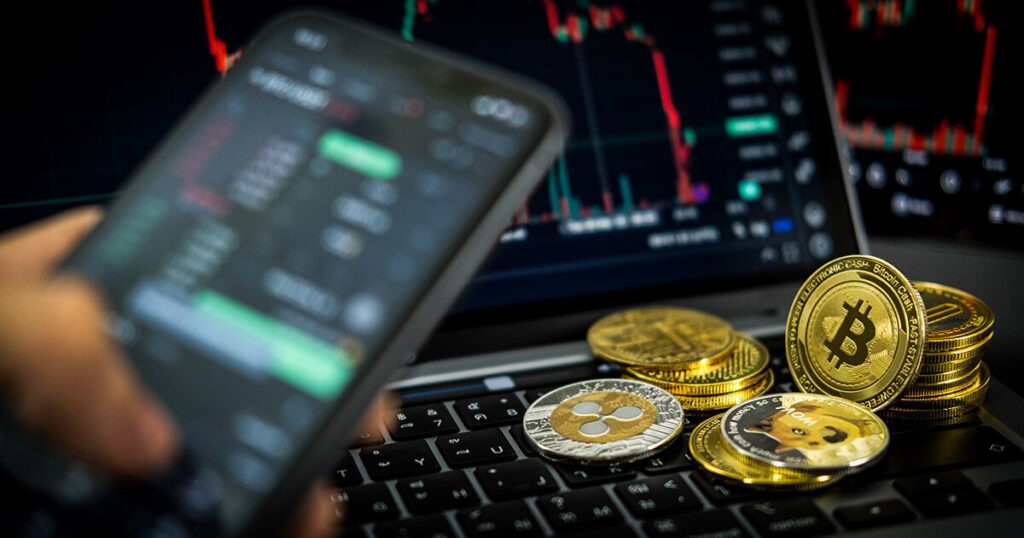The world of finance is evolving, and blockchain technology is at the forefront of this revolution. Upstream, a pioneering fintech company, has recently unveiled its innovative investing app, which showcases the immense potential of blockchain technology in the financial sector. In this article, we will explore how Upstream’s investing app is making waves in the industry, demonstrating how blockchain can transform traditional financial systems and provide new opportunities for investors.
Upstream’s Blockchain-Powered Investing App
Upstream’s investing app is a game-changer, utilizing blockchain technology to offer a more transparent, secure, and accessible investment platform. Let’s delve into the key features and benefits that make this app a noteworthy example of blockchain’s potential:
Transparency and Security
One of the most significant advantages of blockchain technology is its transparency. Upstream’s app leverages blockchain to provide real-time, immutable records of all transactions, ensuring that every investment and financial operation is recorded securely. This transparency minimizes the risk of fraud, errors, or unauthorized changes to financial data, providing users with confidence in the integrity of the platform.
Decentralization:
Upstream’s app is built on a decentralized network of nodes. This means that there is no single point of failure or control, enhancing the security and resilience of the platform. By decentralizing the investment process, users can rely on a network of peers rather than a central authority, reducing the risk of manipulation and increasing trust.
Global Accessibility:
Traditional financial systems are often exclusive, requiring intermediaries and imposing barriers that hinder access to investment opportunities. Upstream’s blockchain-powered app is accessible to anyone with an internet connection, allowing users from all corners of the world to participate in the global financial ecosystem. This inclusivity can democratize investment opportunities and empower individuals who were previously excluded.
Reduced Costs:
The elimination of intermediaries and the automation of many processes through blockchain result in reduced transaction costs. Upstream’s app allows users to invest with lower fees and overhead, maximizing the return on their investments.
Smart Contracts:
Blockchain’s smart contract technology is a fundamental feature of Upstream’s app. Smart contracts are self-executing contracts with the terms of the agreement between buyer and seller directly written into code. They automatically execute when predefined conditions are met. In the context of investing, this means that transactions are executed seamlessly without the need for intermediaries, significantly reducing the time and cost associated with traditional financial processes.
Fractional Ownership:
Upstream’s app leverages blockchain to enable fractional ownership of assets. This means that users can invest in fractions of assets, such as real estate or stocks, rather than needing to purchase an entire asset. Fractional ownership allows for greater diversification of investment portfolios and increases accessibility to high-value assets.
Enhanced Liquidity:
Blockchain technology facilitates the trading of assets 24/7, reducing settlement times and increasing liquidity. Users can buy and sell assets more quickly and efficiently, responding to market changes in real time.
Immutable Records:
All investment records and transactions are stored on the blockchain, creating a transparent and immutable history of user activities. This provides an auditable and trustworthy record for regulatory compliance and dispute resolution.
The Broader Implications
Upstream’s investing app is not just an innovative fintech solution; it represents the future of the financial industry. By harnessing the capabilities of blockchain technology, this app demonstrates how traditional financial systems can be transformed. Here are some broader implications of Upstream’s innovation:
Disruption of Traditional Institutions:
The decentralization and accessibility offered by Upstream’s app have the potential to disrupt traditional financial institutions. Banks and investment firms may need to adapt to the evolving landscape or face obsolescence.
Financial Inclusion:
Blockchain technology has the power to bring financial services to those who are currently underserved or excluded from the traditional financial system. This inclusivity can reduce economic disparities and empower individuals worldwide.
Regulatory Considerations:
The use of blockchain in financial applications necessitates new regulatory frameworks. Governments and regulatory bodies must adapt to the decentralized and borderless nature of blockchain technology, ensuring that investors are protected while fostering innovation.
Reduced Fraud and Financial Crimes:
The transparency and immutability of blockchain records make it more challenging for fraudsters to manipulate financial data. This could lead to a significant reduction in financial crimes.
Global Investment Opportunities:
Upstream’s app opens up a world of investment opportunities to individuals globally. Investors are no longer limited by geographical barriers and can diversify their portfolios with ease.
Conclusion
Upstream’s investing app is a testament to the transformative power of blockchain technology in the financial sector. Its use of blockchain technology enhances transparency, security, accessibility, and efficiency, making it a compelling solution for investors. This app represents the vanguard of a financial revolution, potentially reshaping how we invest, trade, and manage our assets. As the world continues to embrace blockchain innovation, we can expect to see more disruptive and transformative applications that redefine the financial industry.




